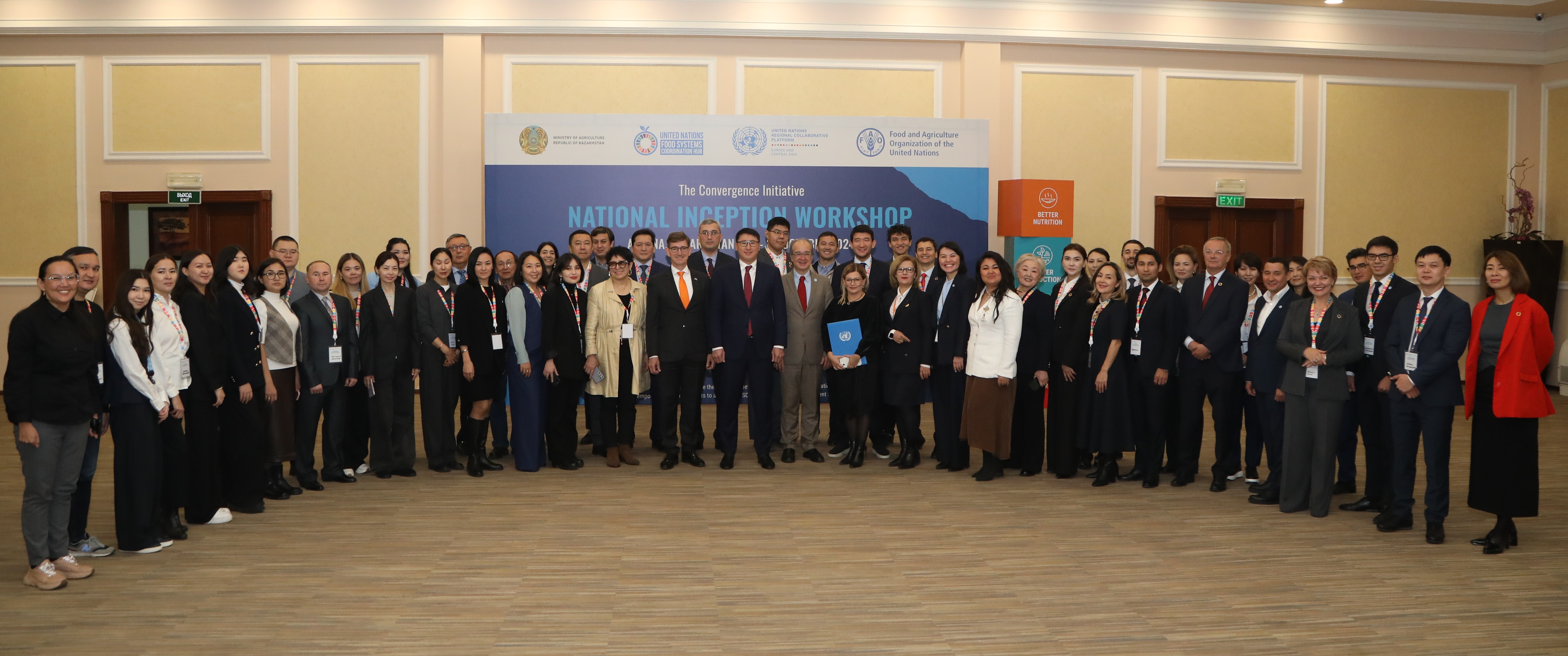SEED FUNDING JOINT PROGRAMMES
Egypt
Strengthening Sustainable and Resilient Food and Nutrition Systems in Egypt for SDG Acceleration




PROJECT TITLE | Strengthening Sustainable and Resilient Food and Nutrition Systems in Egypt for SDG Acceleration |
| Context | Egypt engaged actively in the 2021 Food Systems Summit process, convening a national dialogue and developing national pathways with recommended interventions for improving food security and nutrition by 2030. To enhance multi-sectorial coordination and spearhead the transformation process, the Government created a National Committee for Food and Nutrition Systems chaired by the Prime Minister and bringing together several ministries to coordinate joint actions. Strengthening coordination mechanisms, fostering multi-stakeholder partnerships, consolidating accountability structures, focusing on the availability of evidence, analysis, and data, are identified as key priorities to strengthen the food systems governance structure in Egypt. |
| PUNOs | WFP, FAO, UNICEF |
| Contribution to SDGs | SDG 2 Zero Hunger, SDG 3 Good Health and Well-being, 12 Responsible Consumption and Production. |
| Contribution to other SDG transitions | Climate, biodiversity, pollution |
| Duration | June 2024 – May 2025 |
| Expected financial leverage | $87,000 (PUNO co-financing) |
| Alignment with SG Call to Action | Policy integration; Food systems governance; Research, data, technology and innovation; Inclusive and participatory design; Private sector engagement |
| Outcomes | The JP contributes to strengthening policy and governance frameworks for food systems transformation and generating evidence and analysis on key dimensions of food systems to inform decision-making, supporting the work of the National Committee for Food and Nutrition Systems. The JP complements the government’s flagship program “Country Platform for the Nexus of Water, Food and Energy”, which provides a mechanism to mobilize climate finance and private investments. |
| Partners |
|
| Outputs |
|
Kazakhstan leads as first pilot country for the Convergence Initiative

Astana, Kazakhstan – A two-day workshop took place in Astana, Kazakhstan, on October 23-24 to launch the National Inception Workshops for the Convergence Initiative, marking a significant step in aligning food systems transformation with climate action.
As the first pilot country for the Convergence Initiative, Kazakhstan is set to play a crucial role in integrating these agendas to advance progress toward the Sustainable Development Goals (SDGs) and commitments under the Paris Agreement.
The workshop, organized in collaboration with the UN Food Systems Coordination Hub, Kazakhstan’s Ministry of Agriculture, the UN Issue-Based Coalition on Sustainable Food Systems (IBC-SFS), and the Food and Agriculture Organization (FAO), brought together key food systems actors, including policymakers, technical experts, private sector leaders, youth, and civil society. This diverse group united to develop a practical roadmap for action, highlighting Kazakhstan's leadership in modernizing agricultural systems while addressing the broader climate crisis.
The Convergence Initiative builds on two key food systems milestones: the UN Secretary-General’s Call to Action for Accelerated Food Systems Transformation (UNFSS+2) and the COP28 UAE Declaration on Sustainable Agriculture and Climate Action. These initiatives underscore the importance of integrating food systems transformation with updates to Nationally Determined Contributions (NDCs) and National Adaptation Plans (NAPs) to effectively tackle climate change.
“We have a unique opportunity to lead towards carbon neutrality by 2060 and a green economy in Kazakhstan. Our first step is to enhance policy coherence, addressing challenges like water scarcity, land degradation, and inclusive policies that empower all stakeholders—especially women farmers. Let’s modernize our agricultural sector for sustainable, resilient agri-food systems!” said Katarzyna Wawiernia, Acting UN Resident Coordinator in Kazakhstan.
Building on initiatives like the Strategy for Achieving Carbon Neutrality by 2060 and the Concept of Agro-Industrial Complex Development until 2030, climate-resilient practices remain an urgent priority for the country.
Raimund Jehle, Co-Chair of the UN Issue-Based Coalition on Sustainable Food Systems (IBC-SFS), emphasized that "the transformation we seek is not simply an agricultural issue – it is a systemic challenge. We need transformative change for sustainable food systems that ensure food security and access to healthy diets for all, integrating climate resilience, biodiversity protection, public health, and economic development, especially for rural communities and women."
Defining Kazakhstan’s convergence strategy
The workshop set the basis for two key outcomes: the Draft Convergence Action Blueprint (CAB) and the establishment of the Convergence Group. The CAB provides a strategic framework tailored to Kazakhstan, integrating NDCs, NAPs, and the national food systems transformation pathway to optimize resources and address critical issues. The Convergence Group will ensure effective implementation, stakeholder engagement, and ongoing strategy refinement. This effort solidifies the Convergence Initiative, aligning Kazakhstan’s goals with global targets and advancing progress toward the SDGs and Paris Agreement.
Nazgul Khatepova, Food Systems National Convenor of Kazakhstan, highlighted that the Ministry of Agriculture is hosting its first-ever event dedicated to the food systems and climate agenda. She emphasized that the FAO and the UN Food Systems Coordination Hub can rely on Kazakhstan as a steadfast partner in advancing food security and sustainable development, with a clear commitment to addressing climate priorities.
Stefanos Fotiou, Director of the UN Food Systems Coordination Hub, highlighted the importance of Kazakhstan's role as a pioneer in this initiative. "Kazakhstan has taken an ambitious step forward as the first pilot country of the Convergence Initiative in this region. This workshop is not just a meeting, but the foundation for long-term systemic change that will ripple across food systems and climate actions in ways that inspire others globally."
As Kazakhstan embarks on this transformative journey, UN Food Systems Coordination Hub, UN IBC SFS, FAO and its partners remain committed to supporting the country in creating sustainable, resilient and inclusive food systems, addressing climate challenges, and empowering all stakeholders—especially those most vulnerable.
